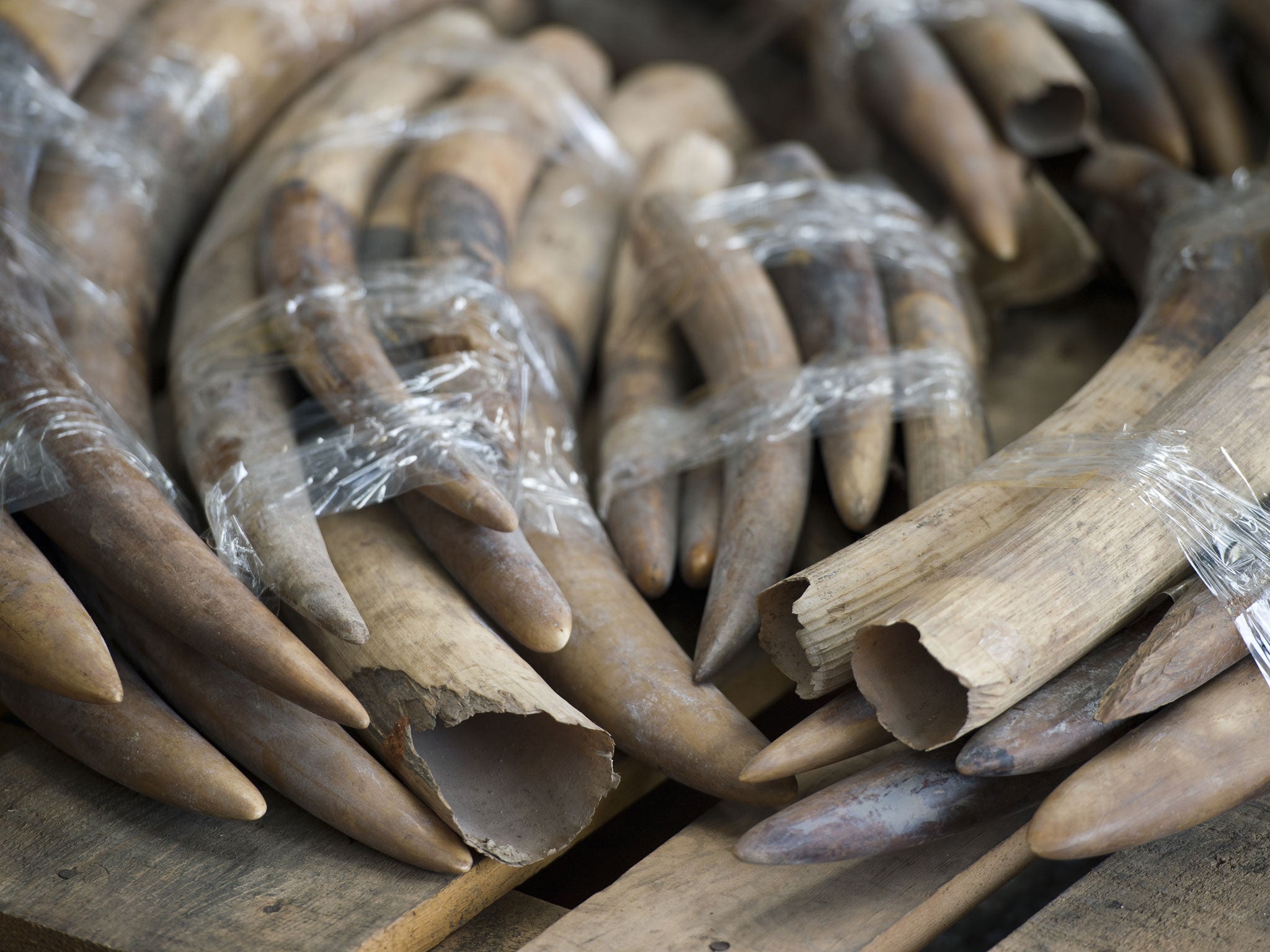China's thirst for ivory is a death sentence for Africa's elephants
Now the slaughter of elephants is worse than at any time since 1989

Your support helps us to tell the story
From reproductive rights to climate change to Big Tech, The Independent is on the ground when the story is developing. Whether it's investigating the financials of Elon Musk's pro-Trump PAC or producing our latest documentary, 'The A Word', which shines a light on the American women fighting for reproductive rights, we know how important it is to parse out the facts from the messaging.
At such a critical moment in US history, we need reporters on the ground. Your donation allows us to keep sending journalists to speak to both sides of the story.
The Independent is trusted by Americans across the entire political spectrum. And unlike many other quality news outlets, we choose not to lock Americans out of our reporting and analysis with paywalls. We believe quality journalism should be available to everyone, paid for by those who can afford it.
Your support makes all the difference.Across Africa, elephants are now being slaughtered in unprecedented numbers, in one of the greatest wildlife catastrophes the world has ever seen – a frenzy of killing sparked by the insatiable demand for ivory for the Chinese market.
No one knows exactly how many African elephants are left. Analyses suggest that the 2007 estimates of 400,000 to 600,000 animals are wildly inaccurate, with some believing the number is no higher than 400,000 and possibly as low as 250,000. With numbers being killed now as high as 52,000 annually, according to a recent estimate by the Center for Conservation Biology at the University of Washington, time is running out for these amazing creatures.
Yet the demand that is driving this disaster was itself given a disastrous impetus by a decision five years ago to let China become an ‘Approved Ivory Trading State’ – a ‘licensed buyer’ of ivory, in a supposed ‘one-off’ legal sale of ivory from four southern African countries, whose elephant populations were then considered healthy.
People seem to have forgotten this decision, especially those that gave it the strongest support at the time. It was made by the Standing Committee of CITES, the Convention on International Trade in Endangered Species, the UN body which is supposed to regulate international wildlife trade.
Many environmental and conservation groups, such as my own Environmental Investigation Agency, warned that the consequences would be catastrophic - that the creation of a legal market for ivory in China would let the illegal market flourish as never before. We predicted that giving China legal ivory imports would mean a death sentence for many of Africa’s elephants as it would lead to massive increase in poaching to satisfy the new Chinese demand.
All this has sadly come to pass. The horrible consequences are clear, with the slaughter of elephants across Africa worse than at any time since 1989 when the international ivory trade was banned by CITES in response to an earlier elephant poaching catastrophe.
The 2008 decision was a terrible misjudgement. It was outrageous – and so was the fact, which has also been forgotten, that the British Government of Prime Minister Gordon Brown actively supported it.
Today Britain has an added responsibility to help stop the elephant slaughter and to end the demand for ivory by taking action to ban the domestic ivory market across Europe, the US, Japan and of course China. It is for Britain now to make up for its terrible blunder in 2008 by leading the fight against the crisis, which may see the African elephant, one of the world's most charismatic animals, driven to extinction.
Allan Thornton is founder and chair of EIA Limited UK
Join our commenting forum
Join thought-provoking conversations, follow other Independent readers and see their replies
Comments